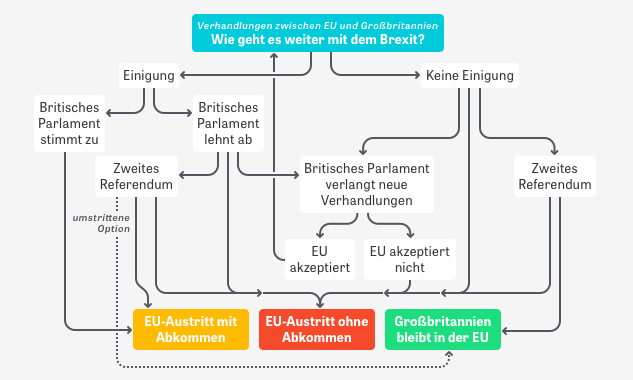The heads of state and government of the remaining 27 EU member states have adopted the Brexit treaty package with Great Britain. This was announced by EU Council President Donald Tusk on Twitter on Sunday. They approved the treaty of resignation and a political declaration on future relations between the EU and the UK. Now there are a lot of things to settle. It provides for a transitional period until the end of 2020, which could be extended until the end of 2022. During this period, there will be virtually no change for business and citizens on either side.
But the British Parliament has yet to vote on the Brexit package in the first half of December. The approval is considered questionable. British Foreign Secretary Jeremy Hunt told the BBC it would be a challenge to get the deal with the EU through Parliament.
The EU Commission is already in emergency mode if there is a “no deal”. Already in March it presented 68 tips for authorities and companies under the title “Brexit Preparedness”. Topics among other things: Network security, air passenger rights, food law and animal transport. In July she appealed to all stakeholders to prepare themselves better for a possible hard breach without a contract. Now parts of the emergency plan have been published.
After all, Great Britain is the second largest economy in the EU and a correspondingly large trading partner of the other EU countries. If you look at the sectors for which Britain’s exit from the EU would have the most serious consequences, the car industry immediately catches the eye. With deliveries worth almost €29 billion for vehicles and vehicle parts in 2015, this sector is the biggest potential Brexit loser, followed by engineering and pharmaceutical companies.
EU countries that have traditionally had close links with the UK in sectors such as finance, trade in goods and direct investment will suffer greatly from Brexit. The Benelux countries, Scandinavia and Spain are particularly affected in terms of investment and exports. Only after these countries does Germany follow as the closest partner hardest hit, very close to the median of the Brexit Sensitivity Index calculated by Standard & Poor’s. This is a sign of the strongest growth in the sector.
Is your company affected by BREXIT? If not already done, they should then set up a special organizational structure for all BREXIT issues. The term “task force” is popular, but at the end of the day this is just a lived emergency process. This shows that a functioning emergency organisation is always a good face for a company.
